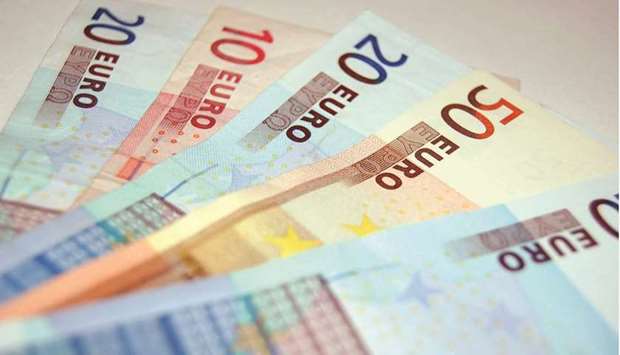European stock markets lost steam yesterday and slid lower following a meeting by directors of the European Central Bank (ECB).
In New York, the Dow Jones index dipped as investors mulled mixed economic data on housing and jobs.
That marked a swift change from optimism on Wednesday as Joe Biden was inaugurated as the 46th US president.
In Frankfurt, ECB chief Christine Lagarde warned the coronavirus pandemic posed “serious risks” to the eurozone economy as new variants spread quickly and vaccination campaigns stumbled.
ECB policymakers left key interest rates on hold however, and took no fresh action after ramping up their pandemic support last month.
The euro fell in value against the pound, with the British currency buoyed by the UK’s early vaccine rollout, analysts said.
The stronger pound, which briefly hit a 2.5-year high versus the dollar, weighed on London’s benchmark FTSE 100 index, especially on multinationals that record substantial earnings in the US currency.
The FTSE 100 fell 0.4% to close at 6,715.42; Frankfurt’s DAX 30 was down 0.1% at 13,906.67, while Paris’ CAC 40 lost 0.7% at 5,590.79.
Europe’s single currency also gained ground against the dollar, and Lagarde emphasised during a press briefing: “We are monitoring very carefully exchange rates.”
A stronger euro makes imports cheaper, keeping a lid on consumer prices and inflation, while exports become less competitive, hurting growth prospects.
Under Lagarde, the ECB took unprecedented steps last year to cushion the impact of Covid-19 on the euro economy.
Its biggest weapon is a pandemic emergency bond-buying scheme, known as PEPP, that was in December topped up by €500bn to reach a total envelope of €1.85tn . The scheme was also extended to March 2022.
The bank has also offered ultra-cheap bank loans and held interest rates at historic lows.
The goal of the measures is to keep borrowing costs low to encourage spending and investment in the 19-nation currency club, in a bid to boost growth and inflation.
But eurozone inflation has stayed stubbornly low for years and even turned negative in 2020.
But at the end of the day, UniCredit research chief Marco Valli remarked that the ECB’s “foreign exchange rhetoric did not change, confirming that the euro has not yet approached the GC’s (governing council’s) pain threshold.”
Earlier in the day, Asian stock markets posted solid gains as Biden prepared to unveil plans on tackling the coronavirus crisis.
The Bank of Japan revised its growth outlook upwards for the next two years meanwhile, and maintained its ultra-loose monetary policy while noting it was hard to establish clear forecasts owing to the pandemic.
On Wednesday, Biden signed a flurry of executive orders, starting with rejoining the 2015 Paris climate accord and keeping the United States in the World Health Organization.
On Thursday, investors welcomed official data that showed strength in the US housing market.
On the other hand, new US jobless claims fell marginally from the prior week, but remained at 900,000, a stunningly high level some 10 months into the coronavirus pandemic.
“The consensus view now (is) that...Biden’s early focus will be more on growth than tax hikes,” said Axi strategist Stephen Innes.
Meanwhile, “central banks may have a little more to do yet if we’re going to see the turbo charged recovery we’re hoping for,” Oanda trading group analyst Craig Erlam told AFP.
Business / Business
European stocks slide after ECB meeting as Lagarde warns of ‘serious risks’ to economy

Europe’s single currency gained ground against the dollar yesterday, and ECB chief Christine Lagarde emphasised during a press briefing: u201cWe are monitoring very carefully exchange rates.u201d
